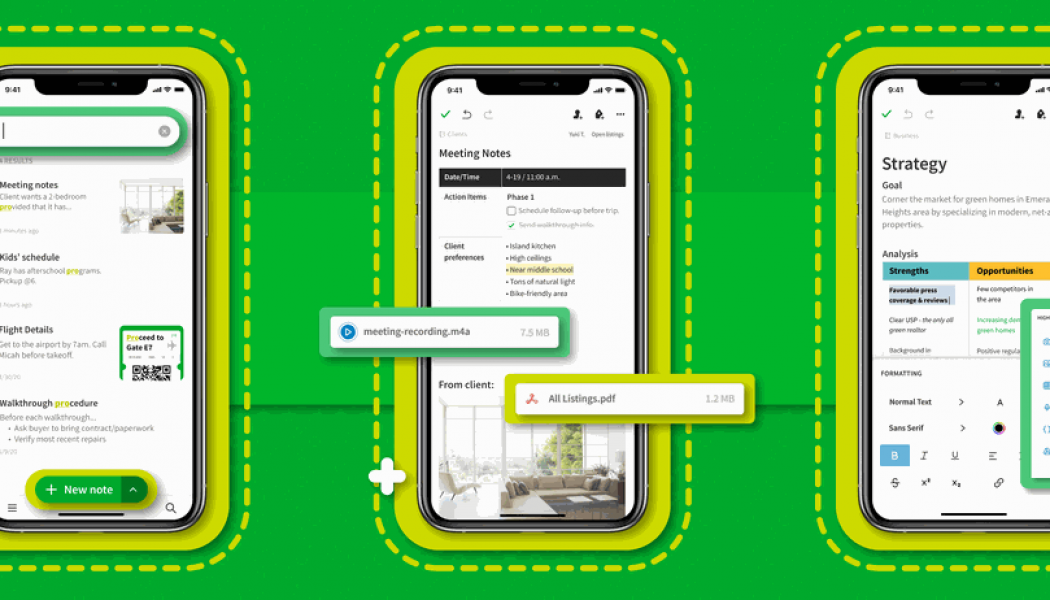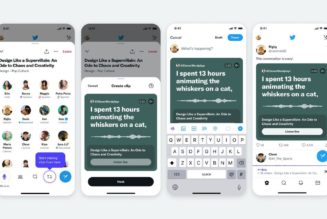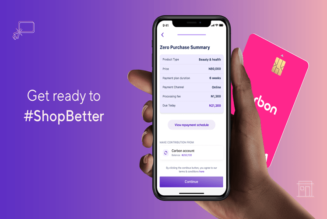Evernote used to be the default in note-taking: the fastest, easiest way to keep track of thoughts across devices. Its fall from grace was slow then sudden (as when four executives left in a single month and the firm was declared to be in a “death spiral”), but a recovery of sorts could be on the horizon. This week, Evernote released a completely redesigned app for iOS and says new apps for Android, Windows, Mac will arrive “in the coming weeks.”
The new iOS Evernote app is cleaner and simpler to look at than the old one, and comes with a whole bunch of UI changes and new features. There are now real-time search suggestions, easier ways to organize tags, a new formatting toolbar that suggests your most-used options, greater control of checklists, new options for headers and tables to structure your notes, and a multi-function insert button for adding multimedia with fewer taps. We’ve yet to dive into the app in depth, but overall the changes look positive.
:no_upscale()/cdn.vox-cdn.com/uploads/chorus_asset/file/21887411/iOS_hero_1549_final_launch_version_2600_2x.png)
Perhaps more importantly, though, the iOS app has also moved to a new codebase that Evernote says is ”more stable and reliable” and will allow for quicker bug fixes. This sort of change is less immediately apparent to customers but vital to any app’s long-term stability. Protocol has an interesting behind-the-scenes interview with Evernote CEO Ian Small, where it points out the problems a fragmented codebase previously caused the company:
Evernote had five different apps run by five different teams for five different platforms, and each had its own set of features, design touches and technical issues. Internally, Evernote employees called the app’s codebase “the monolith,” and that monolith had grown so big and complex, it was preventing the company from shipping cross-platform features or doing much of anything in a short time. While other apps were becoming faster, more useful and more powerful, Evernote was slowly becoming a crufty, complex relic of a once-great app.
:no_upscale()/cdn.vox-cdn.com/uploads/chorus_asset/file/21887406/multi_device_meeting_note_2x__en.jpg)
Although the new iOS app marks something of a reboot for the firm, it’s not a dramatic one. “[O]ur goal has been to improve everything that Evernote is, but the Evernote that will ship on iOS in the coming days is incredibly familiar,” Small told Protocol. And that’s true: nothing here will be shocking to users. The question is, though, will any of it stick?
Monolithic code wasn’t the only thing responsible for Evernote’s downfall. The company also made many unpopular decisions, like raising premium prices and cutting free features and temporarily introducing a privacy policy that told users “you cannot opt out of employees looking at your content.” It’s perhaps worth pointing out that one of our more recent stories on Evernote (from back in 2017) was about a similar overhaul of the app, one of many in the company’s long history. We weren’t convinced and the headline read: “Evernote’s redesign is too little, too late.” Is anyone taking notes?










